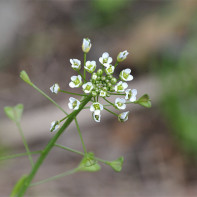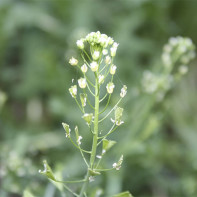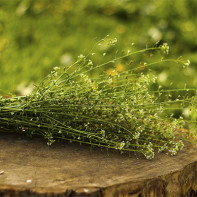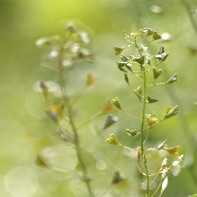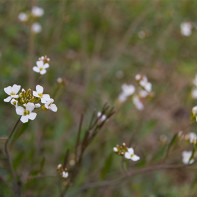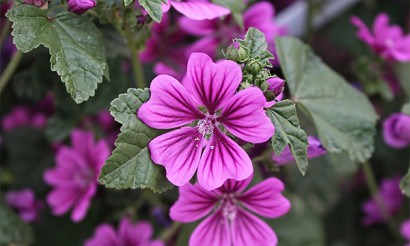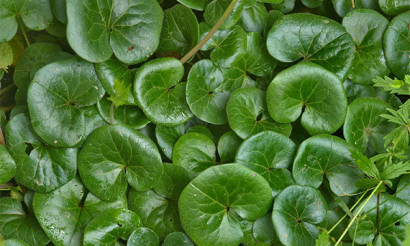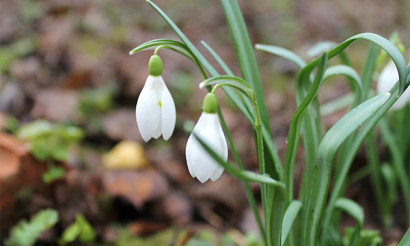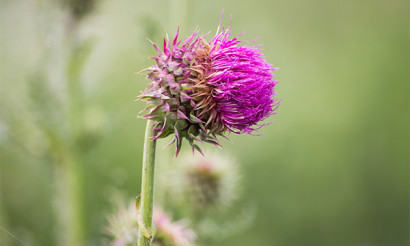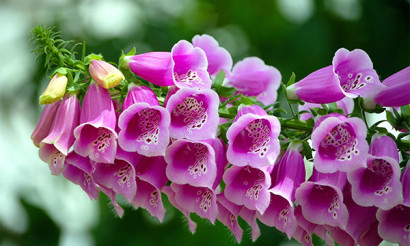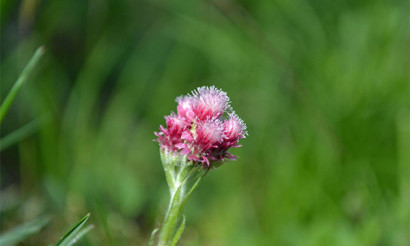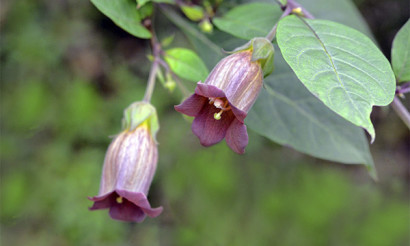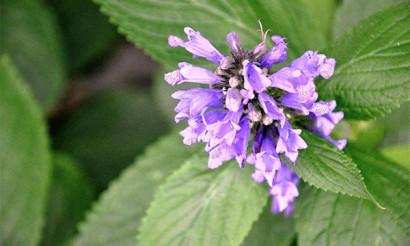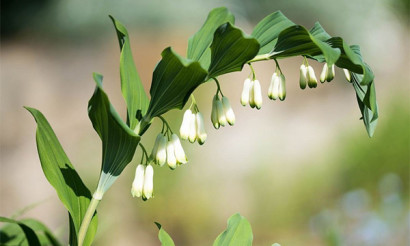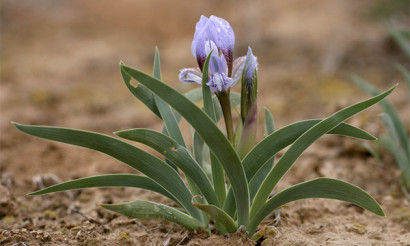Shepherd's purse: medicinal properties and contraindications
Modest-looking plant of the cabbage family is widespread on all continents, almost throughout the territory of Russia and neighboring countries. Its other well-known names are heart grass, field buckwheat, sparrow's eye, swan, piss grass, purse grass, spoonbill. The useful properties of the plant have been known for a long time, mentions of it are found in the sources of Ancient Greece and Ancient Rome.
- Chemical Composition
- What it looks like and where it grows
- Gathering and storage
- Herbs medicinal properties of shepherd's purse
- For Women
- For Men
- For Pregnancy
- For Children
- Shepherd's purse in traditional medicine
- Cooking Applications
- Kinds of medicinal compositions
- Infusion
- Tincture
- Decoction
- Tea
- Contraindications to use
Chemical Composition
Shepherd's purse contains a complex of organic acids, a large number of trace elements and other useful substances:
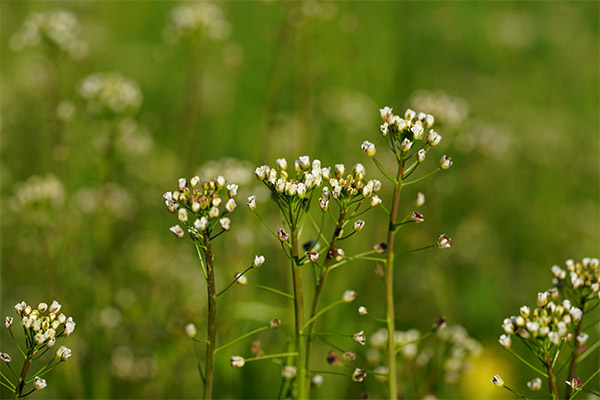
- Vitamin C (ascorbic acid) - helps strengthen the immune system, protects the body from bacteria and viruses, promotes wound healing, has a positive effect on the hematopoietic organs. It participates in the synthesis of collagen, which is necessary for the health of cartilage and bone tissues. It is necessary for the elimination of toxins, normalization of bile output and support of the pancreas.
- Vitamin K (phylloquinone) - helps normalize blood clotting, promotes the absorption of calcium in the body, prevents osteoporosis, protects the body from excessive calcium deposition in the soft tissues and vessels.
- Vitamin B1 (thiamine) is involved in the metabolism of carbohydrates, proteins and fats, protects cells from toxic substances. Thiamine helps the brain, improves concentration, thinking processes, increases the ability to learn. Getting enough thiamine in the body maintains mood, a healthy appetite, muscle tone of the heart and gastrointestinal tract, reduces toothache, helps with motion sickness, improves mood when intoxicated.
- Vitamin B4 (choline) - prevents diseases of the nervous system, keeps it in a healthy state. Protects liver cells, including during toxic drugs, alcohol or viral diseases. It prevents the formation of gallstones. Choline also reduces the level of "bad" cholesterol, reduces the concentration of fatty acids in the body, helps to eliminate homocysteine, thus reducing the risk of cardiovascular disease. It helps maintain normal blood sugar levels. With type 1 diabetes, the body's need for insulin is reduced. Choline is necessary for the prevention of prostate health, and increases sperm motility.
- Vitamin B8 (inositol) - improves metabolism, so it is often used in the treatment of obesity, stimulates the brain, helps to focus attention, develop memory, so it is often included in vitamin complexes for children and adolescents. Inositol is also important for the health of the nervous system, including the regulation of sleep rhythms. This substance prevents the formation of blood clots in blood vessels, strengthens their walls, so it is an important component of funds for the treatment of atherosclerosis.
- Tannins give the plant an astringent and tart taste, help in intestinal disorders, treatment of diarrhea, have bactericidal and anti-inflammatory properties, which accelerates wound healing and disinfects them. Tannins also help eliminate toxins from the body, which can be used in the treatment of radiation exposure. They have hemostatic properties and help with internal and external bleeding.
- Alkalic acid - is essential in the treatment of female and male infertility, chronic tuberculosis, rheumatic and headaches. This acid is able to fight in the body against E. coli, staphylococcus aureus.
- Fumaric acid - in medicine is a part of psoriasis treatment, in the cosmetic industry it is used in dandruff shampoos.
- Citric acid - is involved in cell renewal, helps to slow down aging processes, increases skin elasticity and thus reduces wrinkles. Citric acid is able to eliminate toxins through the skin pores.
- Citric acid - due to its whitening, moisturizing and exfoliating properties is often included in cosmetic lotions, masks and creams. Adding shepherd's purse juice to a moisturizer or applying a mask of honey, olive oil, and shepherd's purse infusion helps refresh the complexion, improve its tone, and smooth the skin. In pharmacology, it is added to treat constipation, stomach disorders, heartburn, as well as to reduce hangover syndrome.
- Beta-sitosterol is a plant substance, phytosterol. Necessary as part of complex therapy for atherosclerosis of blood vessels, for the relief of menopause, prostate diseases. It prevents the deposition of cholesterol in the blood vessels, cleans them, reduces the frequency of attacks of angina.
Flavonoids:
- Diosmin is an active compound, a flavonoid. It reduces the elongation of veins, improves their tone, prevents blood stasis, improves fluid metabolism in the body, helps to eliminate excess fluid and reduce swelling. It strengthens the walls of blood vessels, increases the frequency of their contraction, has anti-inflammatory effect, prevents the emergence of inflammation, pain relief. Due to its properties, it is used as part of medicines for the treatment of varicose veins and hemorrhoids.
- Vitamin P (rutin), a bioflavonoid. Increases the elasticity of blood vessel walls, helps normalize arterial and intraocular pressure, prevents the development of glaucoma. It has anti-inflammatory, anti-allergic effects, reduces swelling and cramps, dilates blood vessels. Its presence in sufficient quantities helps the immune system to fight colds and infections. Vitamin P is often used in diseases of the gastrointestinal system, rheumatism, atherosclerosis, hypertension. In the case of a lack of vitamin P in the skin can appear hemorrhages in the pressure points, small bruises.
- Phytoncides are substances that can destroy or inhibit the growth of microorganisms. They help normalize heart rate, blood pressure, lower blood sugar levels, improve cerebral circulation, support the health of the liver and nervous system.
- Potassium - regulates the water content in tissues of the body, maintains optimal balance of salts, alkalis and acids, thus helping to reduce swelling. Potassium helps normalize heart rhythm. It supports brain activity, improves its oxygen supply, and alleviates allergies.
- Copper - with its deficiency can cause gastrointestinal disorders, anemia, loss of appetite, problems with hair loss and hair breakage, rashes and internal bleeding. Copper is necessary for the health of the nervous, digestive system. It is involved in the conversion of iron to hemoglobin, is necessary for the synthesis of collagen, which is responsible for the health of bones, teeth and cartilage. Copper is also important for the production of endorphins, necessary to maintain mood.
- Zinc is essential for bone formation. Helps prevent diabetes, rheumatism, arthritis, prevents epilepsy, promotes wound healing. It is necessary for the absorption of vitamin A and mental activity, has a positive effect on the condition of the hair and teeth.
- Manganese - normalizes the nervous system, stimulates brain activity, helps the production of ascorbic acid (vitamin C). Necessary to prevent the development of diabetes, regulates glucose levels in the body, improves metabolism, prevents excessive deposition of fat in the liver and other organs. Reduces the level of "bad" cholesterol, which is the prevention of cardiovascular disease.
- Chromium - its deficiency causes insomnia, rapid fatigue, increased anxiety, the appearance of headaches, tremors in the hands, deterioration of the skin and hair. Chromium is necessary for digestion of fats and carbohydrates, is responsible for the withdrawal and processing of lipids, and is needed to reduce body weight and maintain normal weight. This element is necessary for the prevention of thyroid disease and osteoporosis. It stimulates tissue regeneration.
What it looks like and where it grows
Thin, pinnate leaves grow on a thin stem 20-50 cm tall. Inflorescences of small yellow-white or pinkish flowers resemble a neat pouch. The fruits are triangular in shape and turn brown by the time they ripen. The roots of the grass are long and thin. The unpretentious flower grows along roadsides, in pastures, and in fields.
Gathering and storage
The above-ground part of the plant is used as a raw material for the manufacture of medicines. Gathering is carried out during flowering and appearance of fruits, but before their ripening. This period lasts from April to June. Grass should be harvested in dry weather, in the daytime, so that the dew has time to melt. You can take the whole plant with its roots and then remove them, or cut the grass and leave the roots in the ground.
Do not harvest shepherd's purse if it has a white stain (fungus) or if it shows signs of decay. Shepherd's purse, which grows along major highways and in other polluted places, absorbs toxic substances. For this reason, it is better to choose ecologically clean areas to collect the grass.
Fresh stems and leaves are stored for a very short time. In baskets, trays, they begin to get moldy and spoiled, so not much time should pass between the collection and preparation. Dry the collected plants for 5-7 days in the air, avoiding the open sun so as not to burn the raw material. To accelerate the process you can use a dryer at a temperature of about 40-50 ° C. The plant is ready for storage if the stems have become brittle and the leaves have acquired a bitter taste.
Dried herbs should be stored in linen bags, boxes of straw or cardboard, paper bags, in a cool dry place. The period during which they retain the useful properties depends on storage conditions, usually it is 2-3 years.
Medicinal properties of shepherd's purse grass
Shepherd's purse is most commonly used as a styptic. It is also used in combination with other remedies to treat hypertension, cystitis, pyelonephritis, and has antipyretic and mild analgesic effects. Shepherd's purse leaves contain a high concentration of antimicrobial agents that help disinfect wounds and accelerate their healing.
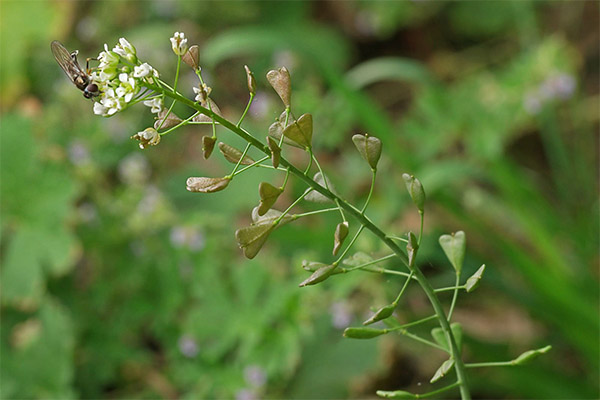
For women
In folk medicine in Russia, women used decoction from shepherd's purse as a contraceptive. The substances contained in the plant actually help delay ovulation and prevent unwanted pregnancy.
Due to the high content of tannins, as well as oxalic acid, decoction from shepherd's purse can reduce bleeding and pain syndrome, alleviate the general condition with heavy menstruation.
Vitamin B8 in the sumo is important for the health and effective functioning of the reproductive system, it is especially useful for women who are planning to become pregnant. The same vitamin, if taken regularly and sufficiently, helps to restore and maintain healthy hair, prevents damage and dryness.
Beta-sitosterol, contained in sumochnik, activates the synthesis of the female sex hormone estradiol. Under its influence, the skin becomes soft and velvety, wrinkles are smoothed, improves complexion. Estradiol improves mood, increases resistance to stress.
The presence of vitamin K makes shepherd's purse valuable for women during menopause, because this vitamin promotes the absorption of calcium, respectively, prevents brittle bones, provides healthy teeth and hair.
For men
Vitamin B4 in shepherd's purse is essential for prostate health. It also helps increase sperm motility, thus helping to combat one of the causes of male infertility.
The content of oxalic acid in sumochnik makes it an important component in the treatment of potency problems. These substances help normalize libido, help increase testosterone levels, so tinctures with shepherd's purse are recommended for the treatment and prevention of problems with potency.
Beta-sitosterol in shepherd's purse is necessary for the treatment of prostate hypertrophy, as well as prostate carcinoma. The treatment of prostate diseases requires a course of tincture of shepherd's purse for 2 weeks, 3 times a day for 2 drops dissolved in half a glass of water.
Pregnancy
Shepherd's purse increases the contraction of the smooth muscles. This is good for intestinal and stomach health, but is dangerous during pregnancy.
When breastfeeding.
There are no contraindications for taking sumochnik during breastfeeding. It is necessary to use decoctions, teas or infusions with it very carefully, starting with small doses. The presence of many different natural potent substances can cause allergies or other negative reactions in the baby.
At the same time, during the period of postpartum recovery, shepherd's purse can have a beneficial effect on the woman's body, helping to accelerate uterine contractions.
For children
It is believed that before the age of 12, decoctions and infusions with shepherd's purse should not be used, because they can cause disorders in the gastrointestinal system, allergies or other adverse reactions of the child's body. Thereafter, children and adolescents should be offered tea with a minimum concentration of shepherd's purse, gradually increasing the dosage if necessary and in the absence of complications.
Vitamins B1 and B8 contained in shepherd's purse help school-age children learn a lot of knowledge, remember information, and develop analytical abilities.
Tea with purslane used in the evening can help normalize sleep, which is also necessary for the growth and development of children. Such a drink is also a natural source of vitamin C, which is especially needed in the spring and fall to prevent colds.
Shepherd's purse in folk medicine
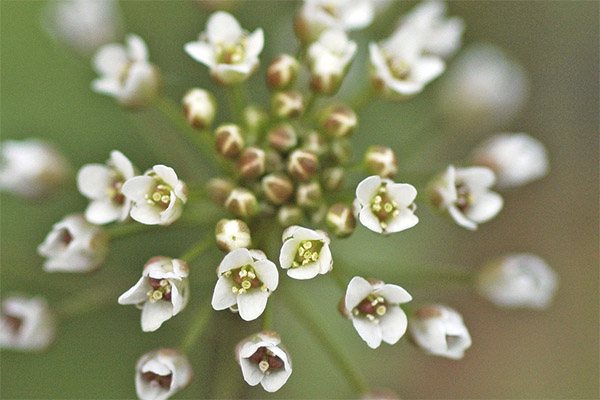
- For the treatment of diseases of the mouth and throat. Gargling with shepherd's purse decoction promotes healing of wounds and cracks, relief from stomatitis and other oral lesions. The procedure should be repeated after each meal for 2-3 days.
- For the treatment of diseases of the gastrointestinal tract. Daily intake of shepherd's purse decoction at least three times a day (between meals) helps to normalize digestion, reduce inflammation in gastritis and colitis.
- For external use, compresses and ointments are used. Lotion prepared from a tincture of purslane, diluted with water in a ratio of 1:3, can reduce rashes on the face, normalize the condition of oily skin, remove unwanted shine.
- Shepherd's purse juice can be applied to gauze and applied to the wound surface to accelerate its healing and prevent bacterial contamination. It is important to apply such a compress after the blood stops and the scar appears.
- Shepherd's purse infusion applied to a cotton pad can be applied to the bruised area to reduce swelling of tissues and speed up resorption of the hematoma.
- With kidney disease, including urolithiasis, infusion of shepherd's purse helps reduce inflammation, reduces pain, promotes stone removal. The course of treatment with the infusion should be carried out at least 2 weeks, take the remedy 3 times a day for 2 tablespoons before meals.
- When nasal bleeding, you can drop the juice. Fresh leaves are ground in a mortar or blender, squeeze with gauze juice. Dilute with water in a ratio of 1:1 and drip 1-2 drops 2 times a day. Alkalic acid in the shepherd's purse has a bactericidal effect, prevents the growth of pathogenic bacteria.
- In hypertension and other diseases of the cardiovascular system is recommended infusion of a complex of medicinal herbs. 20 grams of dried herbs catnip, 20 grams of dried hawthorn flowers, 10 grams of dried valerian root, 10 grams of dried leaves of melissa poured three cups of boiling water and leave in a thermos for 3 hours. Apply 3 times a day for 15 minutes before meals for a course of at least two weeks. Then you need to take a break for at least 10 days and repeat the course.
- To reduce blood pressure use tincture, dilute a few drops in 50 grams of water. To achieve a stable result is recommended course of treatment for a week, the tincture should be taken 3 times a day after 30 minutes after a meal.
- In rheumatism and gout use a complex infusion to reduce inflammation and relieve pain. 10 grams of dried shepherd's purse, 10 grams of dried horsetail pour boiling water and insist in a thermos for 2-3 hours. The remedy is used by 2 tablespoons before meals for 10 days.
- When bleeding in women associated with childbirth, menorrhagia, menopausal complications, it is recommended to use an infusion of herbal collection: 5 tablespoons of dried herb sumochia, 5 tablespoons of dried yarrow, 2 tablespoons of dried oak bark, 5 tablespoons of rhizome clover are mixed. One tablespoon mixture pour a glass of boiling water, infused for one hour, then strain. Take half a cup a day before meals for 5 days.
- When gynecological diseases is recommended to use wine tincture. It is less strong than vodka or moonshine tincture, in addition, the useful properties of wine have an additional therapeutic effect. Take a wine tincture of shepherd's purse should be 1 tablespoon 6 times a day for 1 month. After a one-month break, the course should be repeated. To prepare a wine tincture of sumochnik, pour 50 grams of dried herb 500 ml of dry white wine and insist the composition for 2 weeks in a dry dark place.
- For inflammatory diseases of the female reproductive system, including those provoking infertility, it is recommended to take an herbal collection of dried ingredients: 1 tablespoon dandelion root, 1 tablespoon clover, 1 tablespoon calendula flowers, 1 tablespoon sumac, 1 tablespoon stinging nettle. All crushed and pour 1.5 liters of cold water. Bring the mixture to a boil and boil for 5 minutes. Then cool the broth and refill the evaporated volume of boiled water. Herbal collection to use one glass half an hour before a meal for 5 days before menstruation. After its beginning of the broth should stop. The course of the herbal collection should be repeated at least 4 times.
Culinary Applications
Shepherd's purse is often part of various dishes in the cuisine of China, India, the Caucasus and some European countries. In Russia, shepherd's purse was called peasant mustard, as it was often used to give a spicy spicy taste to various dishes.
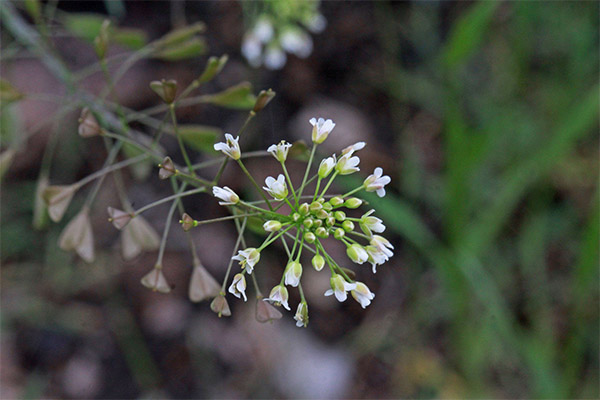
In cooking, fresh leaves are used most often, dried grass is bitter and used only for therapeutic and prophylactic purposes. The plant is added to salads, soups, side dishes, and toppings for baked goods. Shepherd's purse is excellent in salads and appetizers with celery.
Dried seeds can be used as a spice instead of pepper or mustard. The seeds are dried, ground in a coffee grinder, pour boiling water until they are the consistency of sour cream, add sugar and salt. This sauce can be seasoned with fish and meat dishes.
Salads with shepherd's purse acquire a pleasant aroma and delicate flavor.
- One cucumber, one tomato, 100 grams of shepherd's purse leaves, one boiled egg are chopped, mixed, added salt and dressed with sour cream.
- Mix 100 grams of purse leaves with 250 grams of fresh young white cabbage, one cucumber and two slices of garlic. This salad is best dressed with vegetable oil.
- Thanks to the unique composition of microelements and vitamins, shepherd's purse can promote weight loss. Dishes with it are suitable for dietary meals. 4 small potatoes are boiled in water or lean meat broth. 50 grams of onions are fried in vegetable oil with 100 grams of sumac leaves. The greens are added to the potatoes and the soup is boiled for 5-10 minutes. Sour cream can be added to the soup.
In summer you can use shepherd's purse instead of the traditional green onions or dill. Fresh shepherd's purse herbs can be added to the filling of boiled egg and rice for yeast or puff pastry. The cakes will have an original flavor and spicy aroma.
In Chinese cuisine popular dumplings with the addition of shepherd's purse. For their preparation will be required:
- 300 grams of shepherd's purse leaves,
- 200 grams of shiitake mushrooms (can be replaced by mushrooms),
- 6 chicken eggs,
- 5 spoonfuls of flour,
- 50 grams of celery greens,
- 5 cooked shrimp (or a few spoonfuls of dried shrimp),
- salt, and other spices and seasonings to taste.
Mushrooms, celery and shrimp are chopped in a blender. If using dried mushrooms, soak them in warm water for 10-15 minutes beforehand. The 5 eggs are beaten with salt and fried for 5 minutes, stirring all the time. Shepherd's purse is fried in vegetable oil on high heat for 1-2 minutes. All ingredients of the filling are mixed. The dough is made of flour, water and egg. Dumplings can be fried, boiled or steamed.
Types of medicinal compositions
Depending on the presence of contraindications and the state of the body, different drinks can be prepared from shepherd's purse. In addition, it can be combined with other remedies, for example, adding a few spoonfuls of decoction or infusion in honey.
Infusion
Pour two tablespoons of dried herbs in 200 ml of hot water and infuse for 15 minutes in a water bath, then cool for an hour. Then the solution is filtered and the plant material is removed from it. The liquid is added to boiled water to 200 ml and bring to a boil. The resulting infusion is poured into a jar and left in a dark cool place. Use it for two days.
Infusion can be prepared in a simpler way: add 15 grams of dried herbs in a thermos, pour a glass of boiled water, close the lid tightly and leave for 2 hours.
Tincture
Pour the dried herb with vodka so that the level of liquid was above the plant material by 1/3 volume. Keep the tincture for at least 3 weeks. After that, remove the herb and store in a dark cool place. Instead of the tincture, you can use the juice diluted in vodka in a ratio of 1:5.
Decoction .
To prepare, add dried herbs in water at a ratio of 1 gram per 30 ml of water. Bring the broth to a boil and leave on low heat for 30 minutes, then filtered. Decoction can be stored in a dry dark place for up to 3 days.
Tea
You can brew tea from a single shepherd's purse by adding 1 teaspoon of the herb to 1 cup of water. You can also combine purslane with other herbs, such as chamomile, thyme, and lime.
Contraindications for use
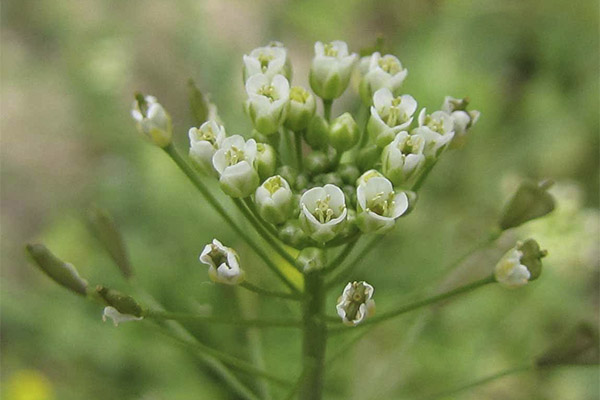
The effect on blood clotting and smooth muscle contraction makes the reception of shepherd's purse undesirable in the following cases:
- tendency to low blood pressure;
- high blood clotting;
- vascular thromboembolism;
- pregnancy.
If you have kidney disease or metabolic disorders, careless use of purslane can provoke the formation of gallstones or bladder stones, because shepherd's purse contains a large amount of oxalic acid, which combines with calcium and crystallizes in the body.
«Important: All information on this site is provided for informational purposes only. for informational purposes only. Check with a health care professional before using any of our recommendations. health care professional before using any of the recommendations. Neither the editors nor the authors shall be liable for any possible harm caused by materials."

